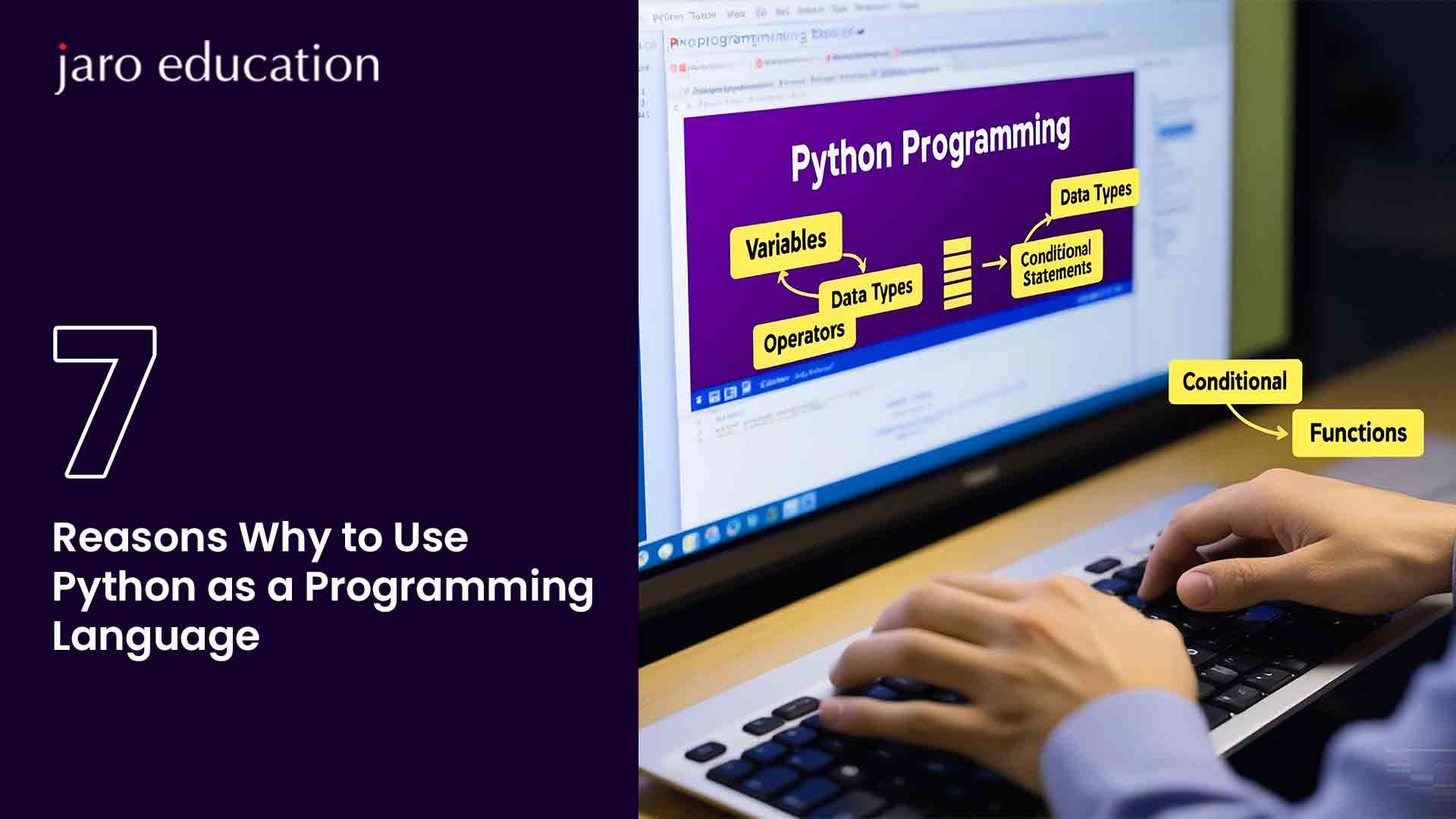
Python: The Essential Programming Language of Tomorrow
Are you seeking a method to boost your efficiency, unleash your creativity, or even kickstart a new career? Python—the high-level programming language, not the reptile—is precisely what you require. As one of the most rapidly expanding and adaptable programming languages globally, Python has gained popularity among students, data analysts, web developers, and leading tech companies like Google and Netflix.
In this article, you will learn why Python is an excellent option for newcomers and experienced professionals alike. Let’s explore the top three reasons to begin your Python journey today.
1. Python Is Fast and Simple to Master
One of Python’s most praised strengths is its straightforward, readable syntax. In contrast to other programming languages like Java or C++, which demand more complicated structures for basic operations, Python distills programming to its core essence.
Example: Displaying “Hello World” in Java vs. Python
Java:
public class Greeting {
public static void main(String[] args) {
System.out.println(“Hello World!”);
}
}
Python:
print(“Hello World!”)
Notice the distinction? Python maintains clarity and brevity with commands that resemble English. This simplicity fosters quick learning, particularly for newcomers who may feel daunted by conventional programming language syntax.
Moreover, Python requires less code to achieve outcomes similar to other languages, making it an excellent tool for swift prototyping, automation scripts, or even comprehensive applications.
2. Python Is Employed in Various Sectors
Python’s adaptability is unparalleled—it’s not limited to websites or data. Let’s examine how Python drives key industries transforming the tech landscape.
Web Development
Well-known web frameworks such as Django and Flask enable developers to establish robust back-end systems for websites and applications rapidly. You’ve likely encountered Python without realizing it—it powers applications and platforms utilized by Netflix, Instagram, Reddit, and YouTube.
Netflix, in particular, extols Python’s usability and the extensive ecosystem of libraries, which propels innovation and boosts performance.
Data Analysis
Python excels at organizing and analyzing large datasets. Tools like Pandas and NumPy streamline the analytical process, allowing data professionals to create visual reports, formulate predictive models, and automate data entry effortlessly.
For instance, businesses can leverage Python libraries like Scrapy and BeautifulSoup to extract insights from social media data, customer feedback, or competitor tactics—a procedure known as data mining. Visualizations generated with packages such as Matplotlib or Seaborn assist businesses in converting raw data into actionable insights.
Consider a practical example:
Twitter data can be examined using Python tools like Tweepy (API handler) to collect tweets relevant to a keyword or company. Here’s a simplified script to assess sentiment regarding “Toptal”:
import tweepy
# Developer credentials
consumer_key = “your_key”
consumer_secret = “your_secret”
access_token = “your_token”
access_token_secret = “your_token_secret”
# Authenticate and create API object
auth = tweepy.OAuthHandler(consumer_key, consumer_secret)
auth.set_access_token(access_token, access_token_secret)
api = tweepy.API(auth)
# Search for tweets related to “Toptal”
for tweet in api.search(q=”Toptal”, lang=”en”):
print(tweet.user.screen_name, “Tweeted:”, tweet.text)
The ease of Python makes such operations swift and effective—essential in today’s data-driven business environment.
Artificial Intelligence & Machine Learning
Python stands as the preferred language for AI and machine learning projects, thanks to its straightforward syntax and an extensive array of libraries:
– TensorFlow, Keras, and PyTorch for deep learning
– Scikit-learn for machine learning models
– OpenCV for computer vision
– Natural Language Toolkit (NLTK) for natural language processing
Whether constructing predictive models or training voice assistants like Siri or Alexa, Python’s platform independence and broad library support render it the perfect language for AI development.
3. Python Presents a Promising Career Future
Python developers rank among the most sought-after professionals in the tech sector. From startups to Fortune 500 companies, Python expertise can unlock numerous career opportunities, including:
– Data Scientist
– Machine Learning Engineer
– Web Developer
– Python Developer
– DevOps Engineer
– Automation Engineer
– Security Analyst
According to Stack Overflow’s 2021 Developer Survey, Python places as the 3rd most popular programming language among over 83,000 respondents—surpassing traditional languages like C++ and PHP.
Python Salary Potential
The financial benefits of mastering Python are substantial. Data from ZipRecruiter indicates that a Python developer in the U.S. earns between $72,000 and $160,000 annually, with salaries rising alongside expertise. Specialized positions, especially in AI and data science, can demand even higher compensation.
Learning Resources and Community Support
One of the most significant advantages of working with Python is the dynamic and inclusive community.